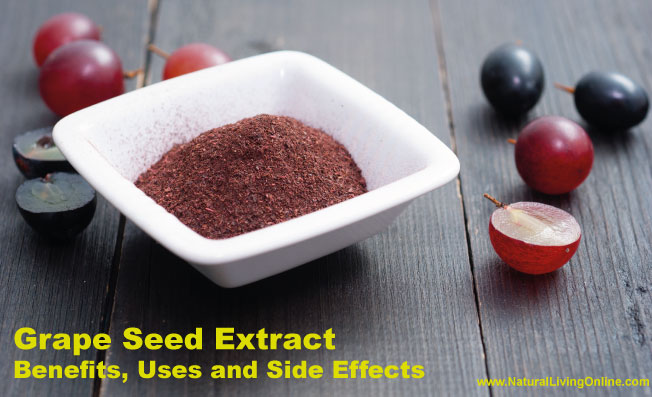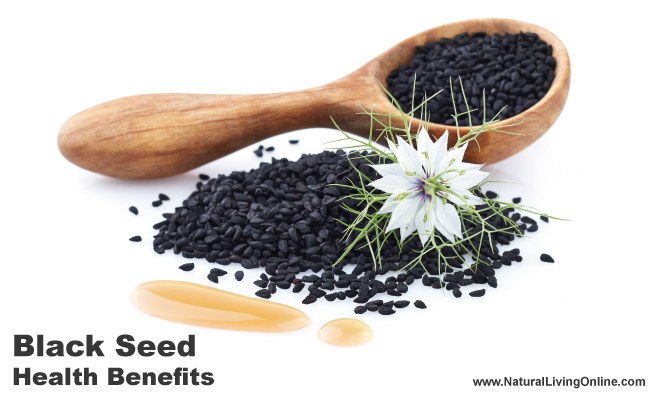Grape seed extract is a powerful antioxidant derived from the seeds of grapes. It has been used as a natural remedy for centuries, and is now gaining popularity as an ingredient in supplements and cosmetics due to its many health benefits. The extract contains compounds known as polyphenols which have anti-inflammatory, anti-carcinogenic, antifungal, and antiviral properties. Additionally, it is a rich source of Vitamin E, linoleic acid and flavonoids which may help protect against heart disease, cancer, diabetes, and other chronic diseases. Studies have also shown that grape seed extract helps to reduce free radical damage in the body that can contribute to premature aging. As such, it is being studied as a potential treatment for conditions such as Alzheimer’s disease and Parkinson’s disease. It is also believed that grape seed extract may help improve circulation, reduce cholesterol levels, and protect against UV radiation.
Grape seed extract is made from dried and ground grape seeds. Grape seed extract can be found in supplement form, or applied topically to the skin in the form of creams and lotions. Additionally, it can be taken as part of a healthy diet by including foods such as grapes, grape juice, raisins, or wine in your meals.
Botanical Profile
Botanical Name: Vitis vinifera
Common Names: Grape, Wine grape
Plant Family: Vitaceae
Countries of origin: Native to the Mediterranean region and Central Asia, but now cultivated in many other countries.
Parts Used as medicine: Seeds
Therapeutic Properties: Antioxidant, anti-inflammatory, antifungal, antiviral, anti-carcinogenic.
Contraindications: Grape seed extract should not be used by those with an allergy to grapes. It is not recommended for pregnant and breastfeeding women.
Nutrition: Rich in Vitamin E, linoleic acid, flavonoids and other polyphenols.
Grape seed extract heal benefits
Cancer
Grape seed extract has been studied for its potential to fight cancer. Studies suggest that grape seed extract can help reduce the growth rate and spread of cancer cells. It appears that grape seed extract works by inhibiting the activity of enzymes involved in cell division and DNA replication, which are essential for cancer growth. Additionally, grape seed extract can also activate apoptosis (programmed cell death) in cancer cells, helping to eliminate them from the body. Furthermore, some research also suggests that grape seed extract may help decrease inflammation associated with cancer and reduce the growth of tumors. Thus, grape seed extract could have a role in helping supplement traditional treatments for certain types of cancer. However, more research is needed to understand the full extent of grape seed extract’s potential as an anti-cancer agent. Ultimately, it is important to speak with a healthcare professional about any cancer treatment plans and dietary supplement regimens. Grape seed extract should not be used as a replacement for traditional treatments such as chemotherapy, radiation or surgery.
LDL (Bad Cholesterol)
Grape seed extract has been studied for its potential to reduce LDL (bad cholesterol) levels. Studies suggest that grape seed extract can help decrease bad cholesterol by modulating the metabolism of lipids, or fats, in the body. Grape seed extract helps inhibit enzymes involved in the uptake of fatty acids from food and the formation of very low-density lipoproteins (VLDL), a type of bad cholesterol. Furthermore, grape seed extract may also help decrease the amount of fat stored in the liver and reduce inflammation associated with high cholesterol levels. However, more research is needed to assess the effectiveness of grape seed extract for lowering LDL levels. It is important to speak with a healthcare professional before taking any dietary supplements, including grape seed extract. Grape seed extract should not be used as a replacement for traditional treatments for high cholesterol such as statins or other medications.
Skin health
Grape seed extract has been studied for its potential to improve skin health. Studies suggest that grape seed extract may help increase skin elasticity and reduce wrinkles. The powerful antioxidants found in grape seed extract can help protect the skin from free radical damage caused by sun exposure, pollution, and other environmental factors. Additionally, some research suggests that grape seed extract may also help improve hydration levels in the skin and reduce inflammation associated with certain dermatological conditions such as acne. However, more research is needed to understand the full extent of grape seed extract’s potential for improving skin health. It is important to speak with a healthcare professional before taking any dietary supplements, including grape seed extract. Grape seed extract should not be used as a replacement for traditional treatments for skin conditions such as topical creams or antibiotics.
Leg swelling
Grape seed extract has been studied for its potential to reduce symptoms of edema, or swollen legs. Studies suggest that grape seed extract can help decrease swelling by inhibiting the activity of enzymes involved in inflammation and fluid retention. The antioxidants found in grape seed extract may also help reduce oxidative stress associated with leg edema, thus improving circulation and reducing swelling. Additionally, grape seed extract may also help improve blood vessel integrity and reduce the risk of further leg swelling. However, more research is needed to understand the full extent of grape seed extract’s potential for improving leg edema symptoms. It is important to speak with a healthcare professional before taking any dietary supplements, including grape seed extract. Grape seed extract should not be used as a replacement for traditional treatments such as compression stockings or diuretics.
Vision protection
Grape seed extract has been studied for its potential to protect vision health. Studies suggest that grape seed extract can help reduce the risk of age-related macular degeneration, a condition that affects vision in the elderly. The antioxidants found in grape seed extract can help protect against free radical damage and inflammation associated with macular degeneration. Additionally, some research suggests that grape seed extract may also help improve blood vessel integrity and reduce oxidative stress, both of which are important for protecting vision health. However, more research is needed to understand the full extent of grape seed extract’s potential for protecting vision health. It is important to speak with a healthcare professional before taking any dietary supplements, including grape seed extract. Grape seed extract should not be used as a replacement for traditional treatments such as eye drops or medications.
Blood pressure
Grape seed extract has been studied for its potential to improve blood pressure levels. Studies suggest that grape seed extract can help reduce systolic and diastolic blood pressure by improving endothelial function and reducing oxidative stress. The antioxidants found in grape seed extract may also help protect from damage caused by high cholesterol or other cardiovascular risk factors. Additionally, some research suggests that grape seed extract may also help reduce inflammation and improve circulation. However, more research is needed to understand the full extent of grape seed extract’s potential for improving blood pressure levels. It is important to speak with a healthcare professional before taking any dietary supplements, including grape seed extract. Grape seed extract should not be used as a replacement for traditional treatments such as medications or lifestyle changes.
Side effects of Grape seed extract
Grape seed extract is generally considered safe and does not have any known serious side effects. However, some people may experience mild digestive upset or dizziness when taking grape seed extract supplements. Additionally, grape seed extract may interact with medications such as blood thinners and statins. People with iron deficiency anemia should also avoid taking grape seed extract as it may interfere with iron absorption. As always, it is important to speak with a healthcare professional before taking any dietary supplements, including grape seed extract.
Overall, grape seed extract is a powerful antioxidant that can be beneficial for many aspects of health. It has been studied for its potential to reduce inflammation, improve skin and vision health, and reduce symptoms of leg edema. However, more research is needed to understand the full extent of grape seed extract’s potential benefits. It is important to speak with a healthcare professional before taking any dietary supplements, including grape seed extract. Grape seed extract should not be used as a replacement for traditional treatments or medications.
Frequently asked questions
What should you not take grape seed extract with?
Grape seed extract may interact with certain medications such as blood thinners and statins. Therefore, it is important to speak with a healthcare professional before taking any dietary supplements, including grape seed extract.
Can you take grape seed extract everyday?
Yes, you can take grape seed extract every day in recommended doses according to the instructions on the product label. However, it is important to speak with a healthcare professional before taking any dietary supplements, including grape seed extract.
What happens if you take too much grape seed extract?
Taking too much grape seed extract can cause side effects such as digestive upset or dizziness. Additionally, grape seed extract may interact with medications such as blood thinners and statins. Therefore, it is important to speak with a healthcare professional before taking any dietary supplements, including grape seed extract.
Does grape seed extract affect sleep?
There is not enough evidence to support that grape seed extract affects sleep. However, some studies suggest that the antioxidants found in grape seed extract may help reduce inflammation, which can improve overall sleep quality.
Should grape seed extract be taken on an empty stomach?
Yes, it is generally recommended to take grape seed extract on an empty stomach for best absorption and effectiveness. However, it is important to speak with a healthcare professional before taking any dietary supplements, including grape seed extract.
Does grape seed extract grow hair?
Grape seed extract may help reduce inflammation, which can improve overall hair health. Additionally, some studies suggest that grape seed extract may help improve circulation in the scalp and promote healthy hair growth. However, more research is needed to understand the full extent of grape seed extract’s potential benefits for hair growth.
Does grape seed extract affect hormones?
There is not enough evidence to support that grape seed extract affects hormones. However, some studies suggest that the antioxidants found in grape seed extract may help reduce inflammation, which can improve overall hormonal balance.
Can I just eat grape seeds?
Yes, you can consume whole grapes or grape seeds. However, the amount of antioxidants contained in whole grapes or grape seeds is significantly lower than that found in a concentrated grape seed extract supplement. Additionally, it is important to speak with a healthcare professional before taking any dietary supplements, including grape seed extract.
Is grape seed extract and grape seed oil the same?
No, grape seed extract and grape seed oil are not the same. Grape seed extract is a concentrated dietary supplement made by crushing the grape seeds, whereas grape seed oil is made from cold-pressed grape seeds. Additionally, it is important to speak with a healthcare professional before taking any dietary supplements, including grape seed extract.
References:
- Grape seed extract: having a potential health benefits, https://www.ncbi.nlm.nih.gov/pmc/articles/PMC7054588/
- Health Effects of Grape Seed and Skin Extracts and Their Influence on Biochemical Markers, https://www.ncbi.nlm.nih.gov/pmc/articles/PMC7696942/
- The effect of grape seed extract supplementation on oxidative stress and inflammation: A systematic review and meta-analysis of controlled trials, https://pubmed.ncbi.nlm.nih.gov/34107109/
- Grape Seed Oil Compounds: Biological and Chemical Actions for Health, https://www.ncbi.nlm.nih.gov/pmc/articles/PMC4988453/
This website does not provide medical advice.
All information provided on this website, and on associated social media networks, including but not limited to texts, images, and numbers are for general information purpose only. It is not intended as medical advice and it does not include all possible precautions, side effects, or interactions that may occur. Neither NaturalLivingOnline.com nor its author/founder take responsibility for how you use this information. Statements contained on NaturalLivingOnline.com have not been evaluated by the FDA. You should conduct thorough research via multiple sources and consult your physician or qualified doctor before using any essential oil or herbal remedy. Information on NaturalLivingOnline.com must not be relied upon for medical, legal, financial or other decisions.













